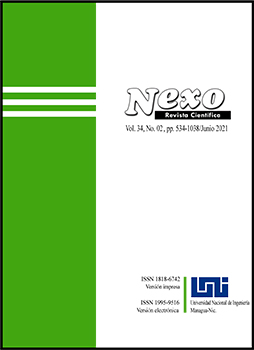Economic and legal aspects of the innovative activity of enterprises in the context of the digital economy
DOI:
https://doi.org/10.5377/nexo.v34i02.11623Keywords:
Investment attractiveness, Law, Information technology, Efficiency, Economy, ProductionAbstract
The article deals with the economic and legal aspects of the innovative activity of enterprises in the context of the digital economy. The authors have established that the innovative activity of enterprises includes also the development of artificial intelligence and robotics and that in the current conditions when creating and using artificial intelligence technologies, the issue of ensuring national security in the digital environment becomes extremely important. In this case, the strategic goal of ensuring information security is to protect the vital interests of the individual and society against internal and external threats associated with the application of information technologies for various purposes contrary to civil law. It is proved that innovations will increase the investment attractiveness of the business, maintain a balance of creative freedom and internal control measures, self-regulation in the field of digital technologies, and develop a unified legal framework in the economic space.
Downloads
2077
Downloads
Published
How to Cite
Issue
Section
License
The authors who publish in Nexo Scientific Journal agree to the following terms:
- Authors retain the copyright and grant the journal the right of the first publication under the license Creative Commons Attribution License, which allows others to share the work with a recognition of the authorship of the work and the initial publication in Nexo Scientific Journal.
- Authors may separately establish additional agreements for the non-exclusive distribution of the version of the work published in the journal (for example, in an institutional repository or a book), with the recognition of the initial publication in Nexo Scientific Journal.
- Authors are allowed and encouraged to disseminate their works electronically (for example, in institutional repositories or in their own website) before and during the submission process, as it can lead to productive exchanges, as well as earlier and greater citation of published works.










